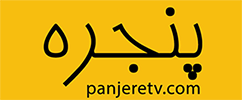Ali Hatami
Important movies: Madar, Kamal-ul-Molk, Delshedgan
Ali Hatami has been called the poet of Iranian cinema. A director whom Iranian cinema lost early. He was born in August 1323 in Tehran and died in December 1375 at the age of 52 due to cancer. Leila Hatami’s father and Zari Khoshkam’s wife graduated from the Faculty of Cinema and Theater. He is one of the leading filmmakers of Iran in the 40s. In 1348, Hatami made his first feature film, the musical “Hasan Kachel” starring Parviz Sayad, based on one of the Iranian folklore stories. He had previously written the play “Hassan Kachel” for the theater, which was well received, which encouraged him to make a film version of it.
Hatami was active in both cinema and television in the 50s. One of the best films of Iranian cinema in the 1950s is “Sotedelan” which was made by Hatami. After the revolution, he was interested in writing and producing the series “Hazardestan” and building a movie town where the series was filmed. For this reason, he made his first feature film “Haji Washington” in 1361. The film was also banned and years later a modified version of it was shown, although now some of its dialogues such as “Shut down the country, open Darlaitam” have been quoted in circles.
A year later, he made the movie “Kamaal-ul-Molk”. Among his films, “Mother” was the most understood in his time. Ali Hatami was fascinated by the Qajar style in designing the scenes of his films, which he usually did himself. His dialogues were poetic and with all his films, they were believable for people.
Ali Hatami’s last film was “Jehan Pahlavan Takhti” which was left unfinished after his death and was later completed by Behrouz Afkhami.
Ebrahim Hatami Kia
Important films: The Glass Agency, from Karkheh to the Rhine
Hatamikia is considered the most important Iranian filmmaker in the field of war. He was born on October 1, 1340. He started cinema by making short films and documentaries in the field of war. He made his first film “Identity” in 1365. He became famous with his next two films, “Didehban” and “Mohajer”, and in the 70s, he came out of the battlefield with the film “From Karkhe to Rhine”, one of the most important tear-jerking melodramas of Iranian cinema, and told the story of the people of war outside the battlefield.
In 1376, he made the best film of his career, “Glass Agency”, which is known as one of the best films about the fighters of the imposed war. Some of Hatamikia’s films were banned, such as “Dead Wave” and “Purple Color”, the latter of which showed an image of a member of the Ministry of Information for the first time in cinemas, and of course, after a few years, the ban was lifted and it was shown. In the 80s, the best movie he made was “Low Post”, whose script he wrote with Asghar Farhadi. The 90s is the era of stagnation and decline of Hatami, and except for the film “Ch” which has its own critics, he has not made a film that is unanimously applauded. Perhaps, according to Selahshor of the movie “Glass Agency”, the era of the coach has passed!
Samuel Khachikian
Important movies: Four Roads of Incidents, Anxiety, Zabat
Now you say that the comparison is strange, but Khachikian was the Alfred Hitchcock of Iranian cinema. Professor of Delahre cinema and one of the most influential directors of Iranian cinema. Khachikian was born in Mehr 1302 and in 1336 he became one of the most popular directors of Iranian cinema with the film “Night in Hell”, which was his fifth film. He made his first film “Return” in 1332. During a decade from the mid-30s to the mid-40s, every film he made became one of the best-selling works of Iranian cinema.
Khachikian adapted his third film “The Four Paths of Events” from a play he wrote himself. The movie that made his name famous. He continued directing after the revolution and is one of the most prolific directors of Iranian cinema.
His action movie “Eagles” starring Jamshid Hashempour in the 60s is one of the most popular movies in the history of Iranian cinema. Even today, if you see the film, despite the progress of special effects, you will notice Khachikian’s ability to direct. Khachikian continued to make films until 1380, when he died, and his last film “Doubt” was left unfinished after his death.
